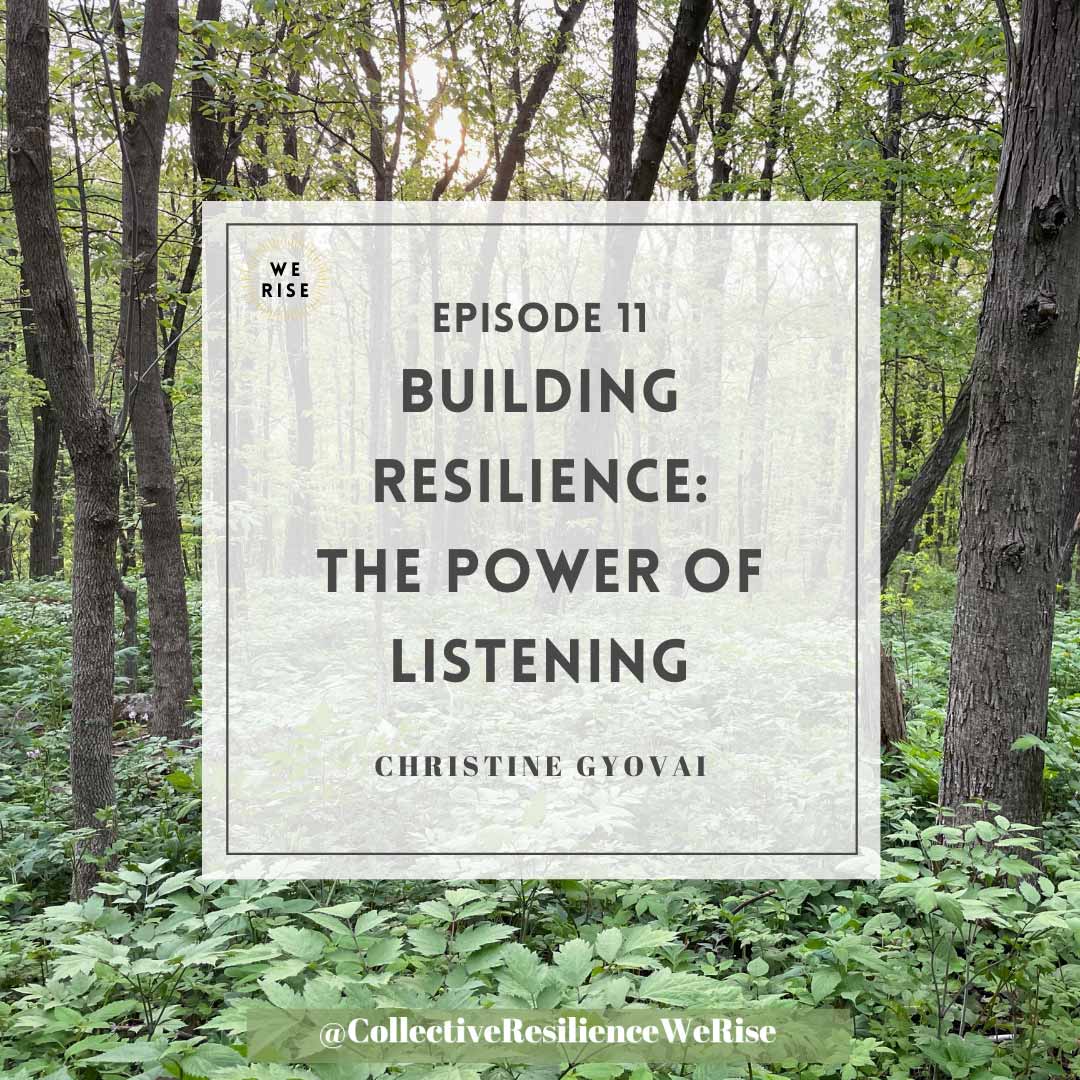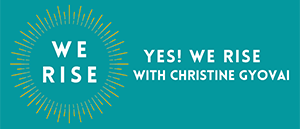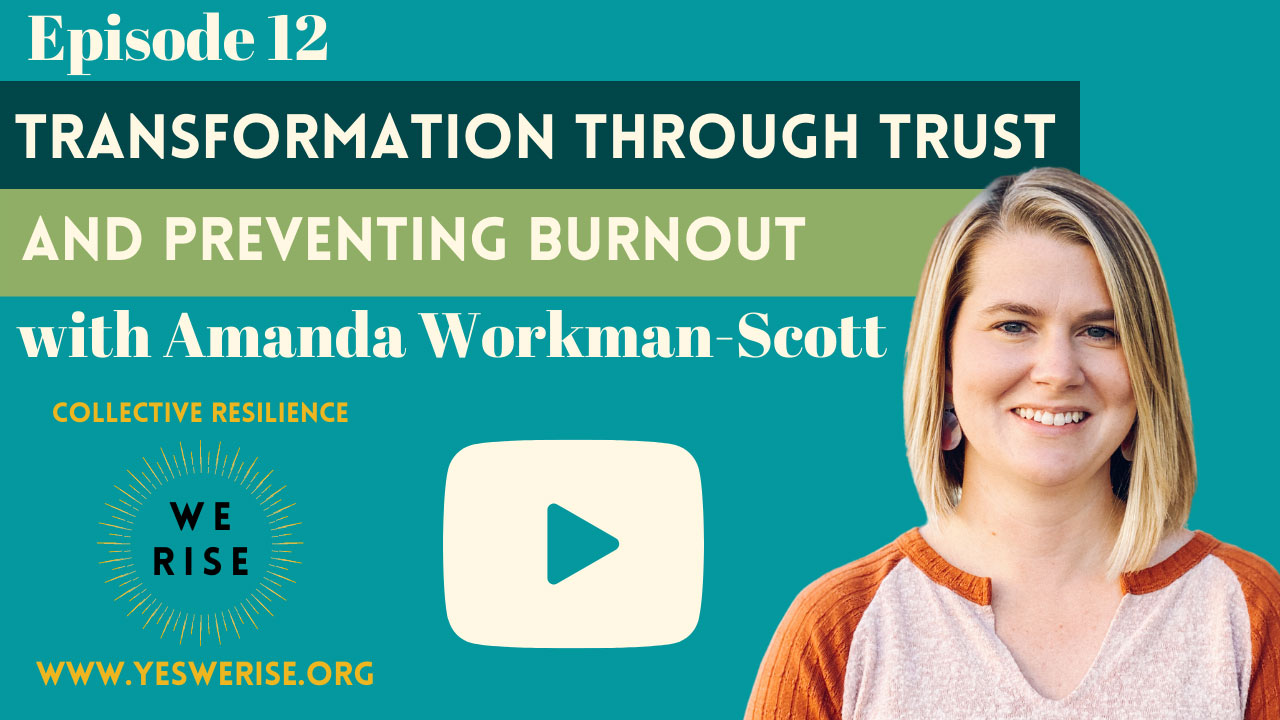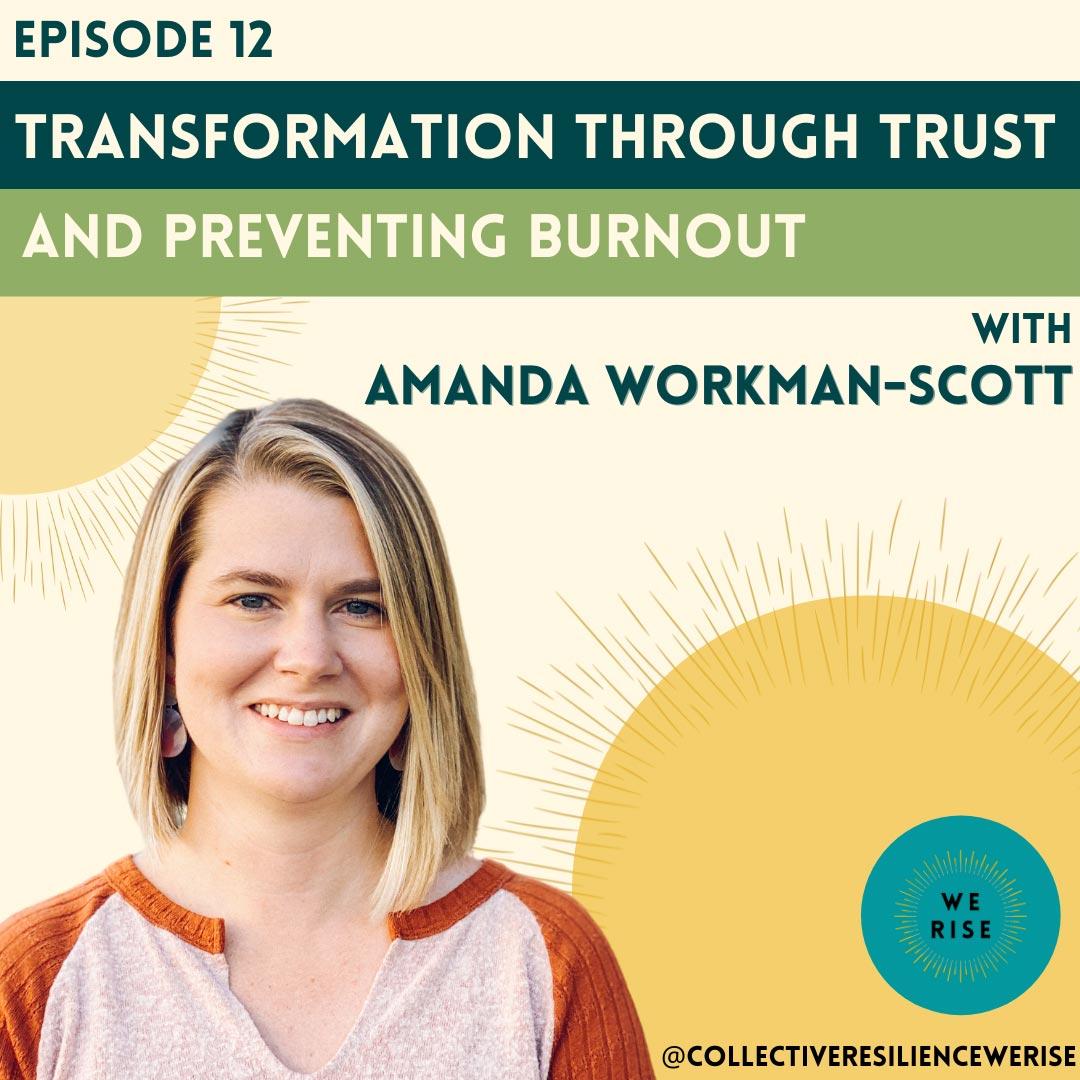
Episode 12:
Transformation Through Trust and Preventing Burnout with Amanda Workman-Scott
Episode 12 Description
Welcome back to the We Rise Podcast. In today’s episode, Christine has a lively conversation with Amanda Workman-Scott, the Director of Community Engagement at the West Virginia Community Development Hub. Amanda shares the importance of building trust, empowering communities, and overcoming fear of change. She also dives into the importance of work-life balance and preventing burnout. Join in as they talk communication, trust, and networking, which are key components to helping communities create the change they want to see.
Amanda is married with three children and originally from West Virginia. Moving away after college, she lived in St. Louis, Chicago, and Richmond. But after returning to West Virginia to help her parents with their farmers market, she was instantly reminded of the incredible community and sense of home she felt in her home state. Wanting that same experience for her children, her family made the decision to stay.
This was an incredibly rich conversation with so many tangible takeaways. We can’t wait to hear your feedback.
Download the show Notes
find this episode on youtube
Key takeaways
Coming alongside communities with trust and communication
Amanda works as the Director of Community Engagement at the West Virginia Community Development Hub, a non-profit organization. This work involves coming alongside communities that are looking to create change and need support along the way.
The Hub is also deeply passionate about developing leaders and empowering towns to do the work and create the change they want to see.
So how does this work start?
Getting connected to communities usually happens one of two ways: The Hub spreads their message throughout West Virginia, spotlighting the important work that they do, and a town learns about them, and the connection is made. A community can also apply to work with the Hub after witnessing another community’s growth and transformation.
Developing one-on-one relationships is vital when starting work with a new community. Amanda and her team members sit down with the leaders and stakeholders and have conversations not only about the town, but also about who they are. This builds relationships and creates trust.
How do you empower a community at the beginning?
Start with a small project, such as a community clean-up. As a community sees small successes and micro wins, they become encouraged and emboldened to take action with bigger projects.
The Hub also provides additional services, including responsive coaching and a kickstart program. Responsive coaching allows a person or group to reach out directly to the Hub and receive guidance and support with a project at hand. The kickstart program provides online lessons to help an individual or group get started and work toward their goal, giving them tools and resources in the process.
Overcoming fear of change and the power of peer learning
One of the biggest obstacles to change is fear. Some folks are ready for change, but others may be skeptical. To overcome this, it’s important to create space for honest conversations. It can help to ask the questions, “What’s working?” AND “What’s not working?”
It’s important to keep everyone in the loop as well, maintaining communication and returning to those who may initially have been hesitant. Keeping those who were skeptical or unsure of change in the conversation is key, because as movement occurs they may become interested and even enthusiastic in taking part in the process.
Sometimes the fear is the potentially negative effects of tourism. It is important to not only focus efforts on bringing in tourists, but also meeting the needs of the local community. By striking this balance it can become easier to welcome travelers into the town.
So how do you come alongside a community and support them in transformation?
The Hub offers three levels of programming: Entry, Intermediate, and Advanced.
At the entry level, the focus is on engagement and working with the entire community. The intermediate and advanced levels focus on a core group of people who are working on projects as well as community engagement. All three of these programs include a community coach, which is a key part of the Hub’s approach.
Another important piece to the programs and the support is peer learning. Bringing different communities together to learn from one another is a valuable way to empower and support folks as they work toward their community goals. Sometimes this looks like collaboration within the communities. Other times it means connecting a community to previously successful towns.
The coach is there to foster and facilitate these connections, provide resources, technical support, and also remind communities that change takes time, and that is why it’s important to continue bringing new people to the table as projects evolve over time.
Communication and preventing burnout
Amanda encourages communities to communicate their needs and take time for their own self-care. If an individual needs a break or feels overwhelmed, she reminds them that it’s okay to do that and create that space for themselves. Once they are in a better place, they can come back. The door is always open. It is this type of open communication that allows for a healthy, long-term commitment to transformation.
The Hub also maintains this same philosophy throughout their Community Development Network. The partners and the Hub staff lean on each other to make connections outside of their network and bring in new people.
Part of that support is acknowledging that the work is hard and constant. Just as with the communities they are helping, Amanda and her team recognize burnout is a possibility. A constant conversation is work-life balance to ensure everyone is at their healthiest and able to be fully invested in their work.
One way Amanda taps into her own work-life balance is by supporting her family’s farmers market in Bridgeport, West Virginia. From May to October she spends every Sunday rolling up her sleeves and helping her family for the three hour event. In addition to traditional vendors, the market also features food trucks, artisans, and live music, creating a special gathering every week.
As Amanda spends her work life helping other communities, she believes that this farmers market is a way to practice what she’s preaching. It brings her joy to actively participate in what her community is doing.
notable quote from Amanda
“Seeing my community members and seeing when the light bulb goes off and seeing them be successful and keeping the work going even after we’re not necessarily there every day, that’s what keeps me going.”
Links/resources mentioned
Learn more about the work Amanda Workman-Scott is doing at the West Virginia Community Development Hub
Learn more about the Bridgeport Farmers Market.
The Yes! We Rise podcast is produced by Dialogue + Design Associates, Podcasting For Creatives, with music by Drishti Beats.
Follow Yes! We Rise on Facebook and Instagram.
Please rate, review, and subscribe to the podcast so we can continue spreading our message far and wide. Find our email list at the website: www.yeswerise.org.
Thanks for listening.
Don’t miss an episode — follow us on Spotify and subscribe via Apple Podcasts, Stitcher, or Google Play, and please leave us a review wherever you listen.
Jump to:
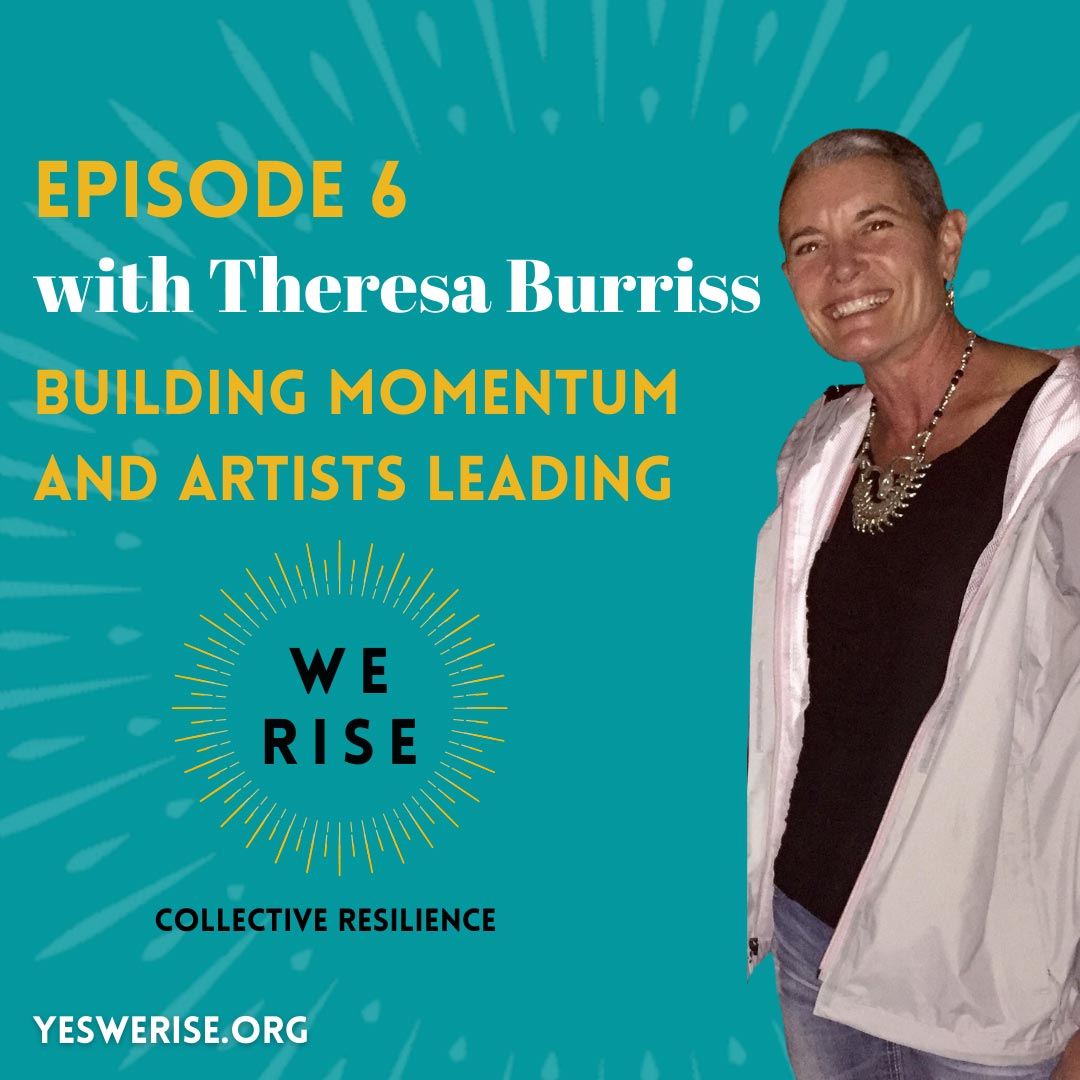
Episode 6
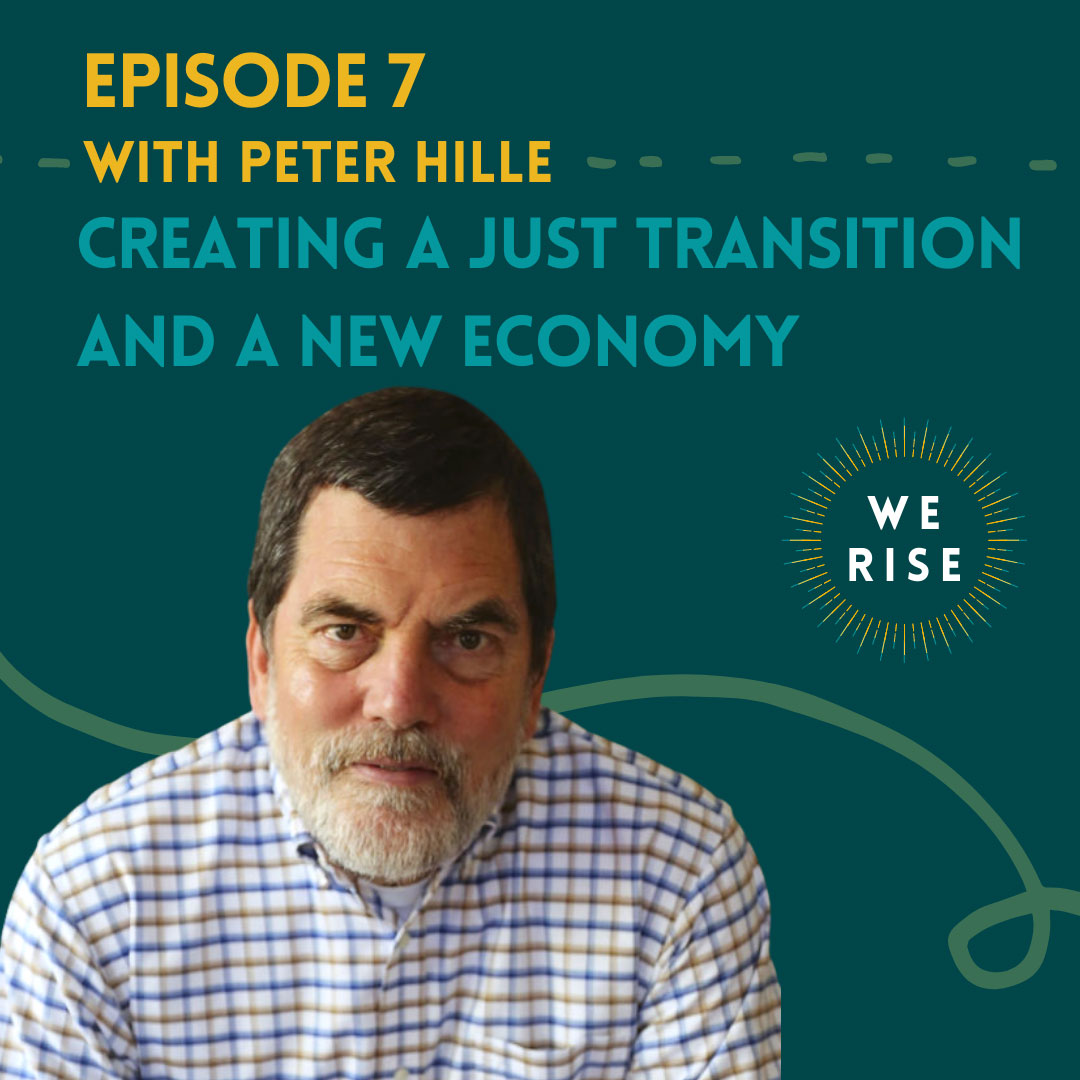
Episode 7
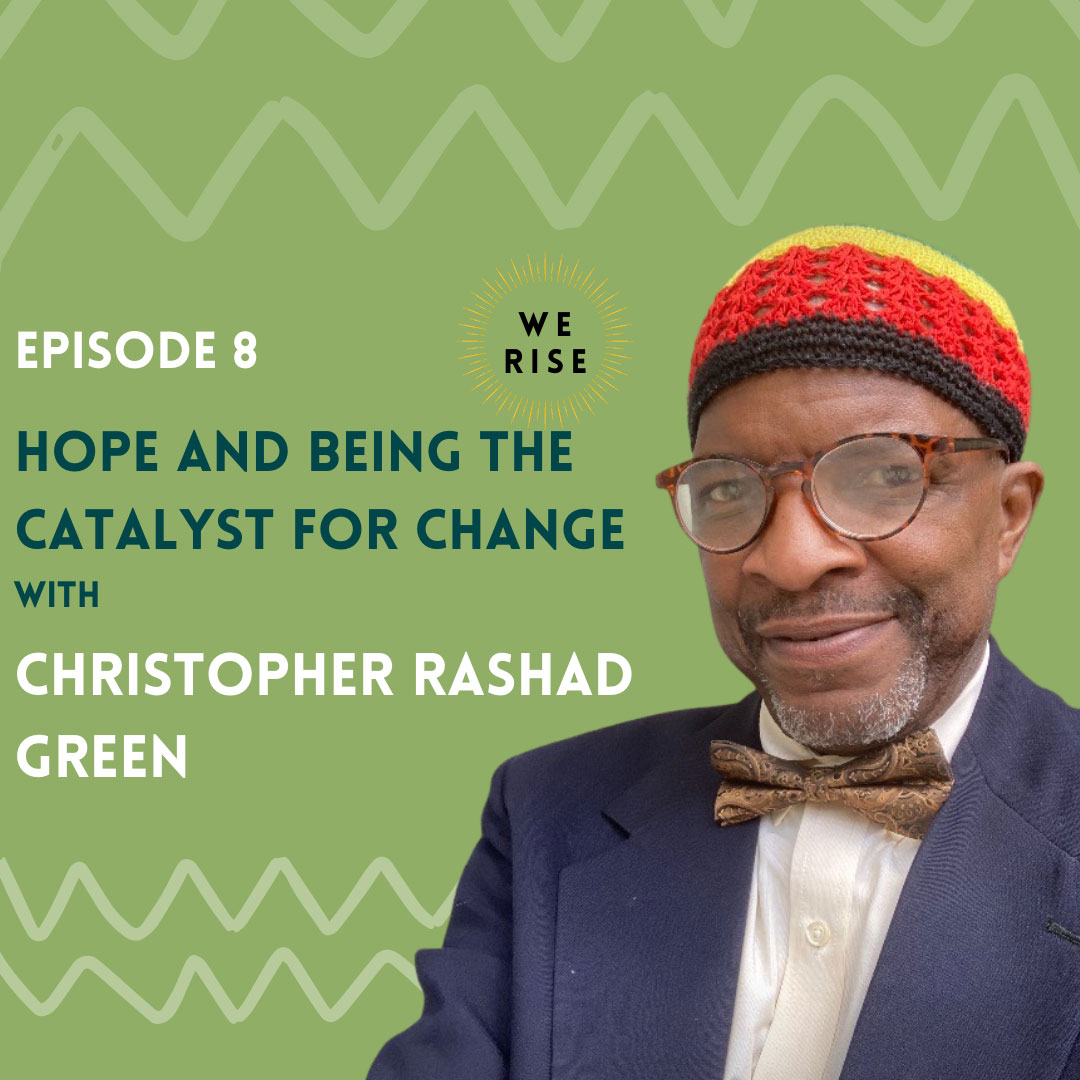
Episode 8
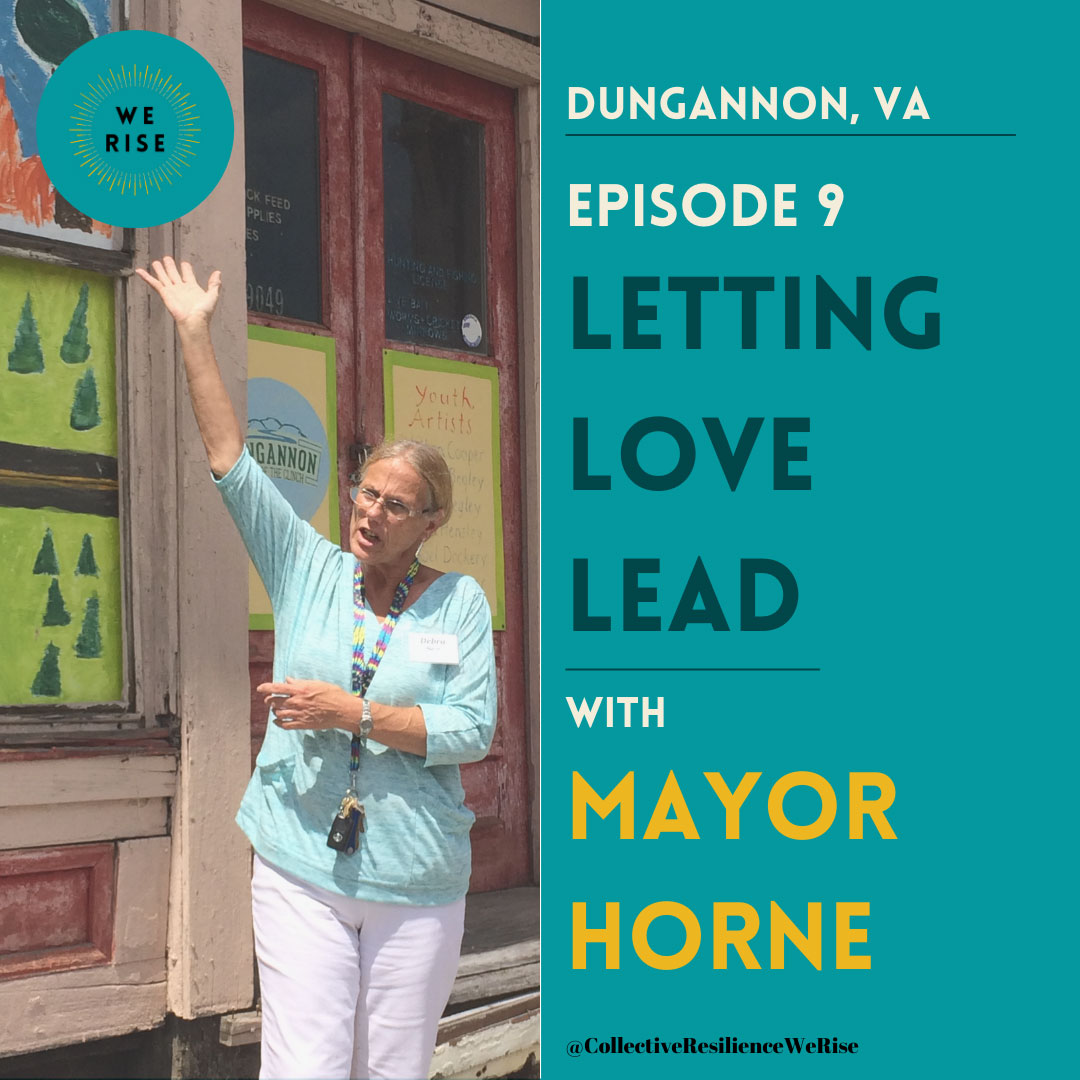
Episode 9
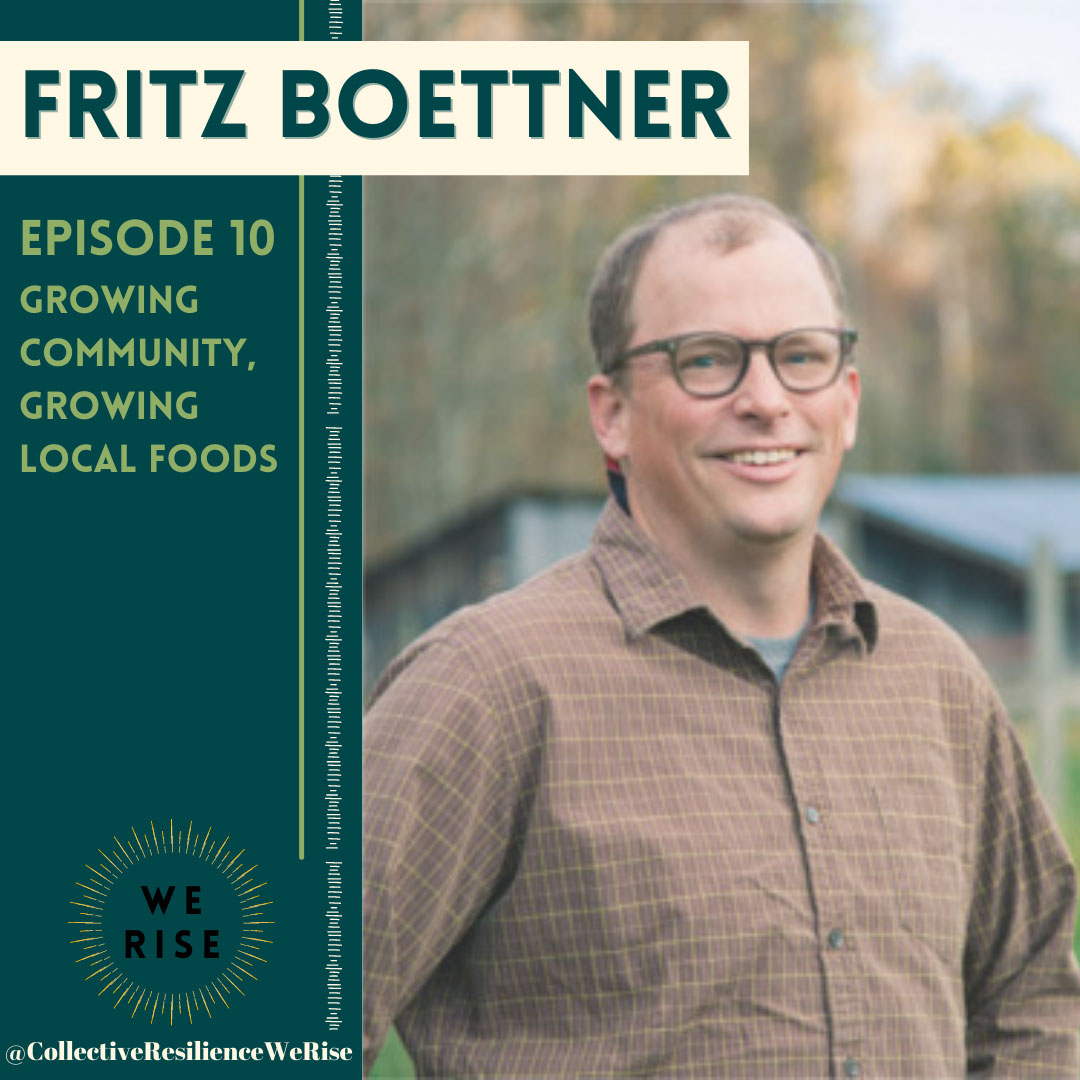
Episode 10
